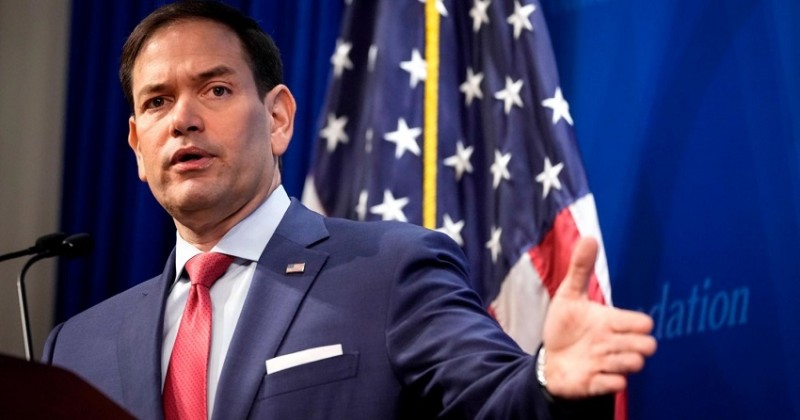
Washington: On July 25, Republican Senator Marco Rubio introduced a significant piece of legislation aimed at bolstering the strategic partnership between the United States and India. The bill, titled the "US-India Defense Cooperation Act," seeks to enhance diplomatic, economic, and military relations with India as a countermeasure to China's growing influence.
The proposed legislation advocates for treating India on par with key allies such as Japan, Israel, South Korea, and NATO partners when it comes to technology transfers. It also emphasizes increasing support for India in safeguarding its territorial integrity and suggests halting security assistance to Pakistan if it is found to sponsor terrorism against India.
“Communist China is aggressively expanding its reach in the Indo-Pacific region and undermining the sovereignty of our regional allies. It's vital that the U.S. continues to support efforts to counter these actions. India is a crucial partner in this endeavor,” Rubio stated upon introducing the bill in the Senate.
Given the current political climate and the upcoming election year, the bill faces a challenging path in a divided Congress. However, it may be reintroduced in the next legislative session due to bipartisan support for strengthening India-U.S. relations. The bill underscores the importance of the U.S.-India alliance in countering China's influence and aims to fortify this partnership through enhanced diplomatic, economic, and military cooperation.
Key provisions of the bill include:
Additionally, the bill seeks to grant India similar treatment to U.S. allies in terms of technology transfers and military cooperation. It authorizes the Secretary of State to sign agreements with India to enhance military collaboration, speed up the transfer of surplus defense equipment, and expand military education and training.
The bill also proposes a report to Congress on Pakistan’s use of offensive tactics, including terrorism, against India, and suggests barring Pakistan from receiving U.S. security assistance if it is found to support terrorism.
This legislation marks a notable shift in U.S. policy by seeking to elevate India's status to that of a treaty ally, exempting it from CAATSA sanctions, and imposing penalties on Pakistan for terrorism against India.
Background on CAATSA:
The Countering America’s Adversaries Through Sanctions Act (CAATSA), enacted in 2017, imposes sanctions on countries interacting with Iran, North Korea, and Russia. India received a waiver under CAATSA through the National Defense Authorization Act of 2019, allowing it to continue importing Russian arms like the S-400 missile system without facing U.S. sanctions.
Other Recent Updates:
Why Has Barack Obama Not Endorsed Kamala Harris Yet? What Report Say?
Netanyahu Proposes 'Abraham Alliance' to Counter Iranian Influence
Kamala Harris Narrowly Leads Trump in Presidential Polls, Check Poll Score